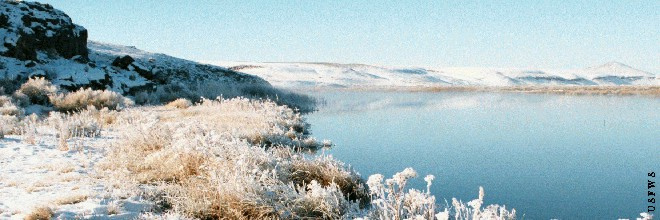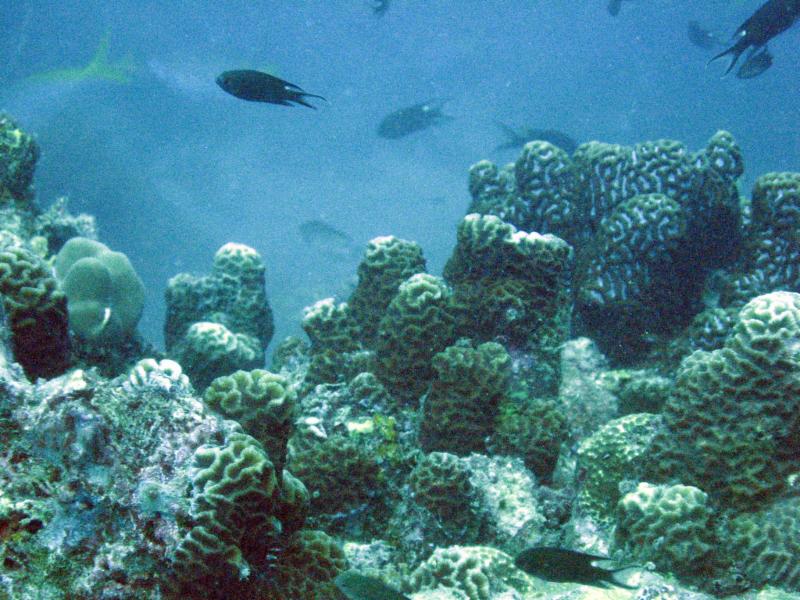A McGraw Researcher Takes Next Step: Graduate School at Purdue
By Shane McKenzie/McGraw Research
McGraw photo
Abby-Gayle Prieur has been part of the McGraw Research Team since spring, 2014. She began at McGraw after earning a bachelor's in fisheries and wildlife management from the University of Georgia and working with the Student Conservation Association (SCA) on everything from invasive plant removal to feral hog control, red wolf conservation efforts and endangered sea turtle nest surveys.
At McGraw, Abby has been a senior wildlife technician overseeing field work, training new staff members, and will finish her first peer-reviewed paper on urban coyote den selection in the coming months.
But all good things must come to an end, and earlier this year Abby was accepted into a
master's degree program with Dr. Rob Swihart at the Purdue University School of Forestry and Natural Resources. She will be studying the effects of row-crop agriculture on populations of voles.
|
|

The Dutch May Have an Answer to Rising Seas
By Michael Kimmelman/The New York Times
Photo by Franz Berkelaar/flickr
The wind over the canal in Rotterdam stirred up whitecaps and rattled cafe umbrellas. Rowers strained toward a finish line and spectators hugged the shore. Henk Ovink, hawkish, wiry, head shaved, watched from a V.I.P. deck, one eye on the boats, the other, as usual, on his phone.
Mr. Ovink is the country's globe-trotting salesman in chief for Dutch expertise on rising water and
climate change
. Like cheese in France or cars in Germany, climate change is a business in the
Netherlands
. Month in, month out, delegations from as far away as Jakarta, Ho Chi Minh City, New York and New Orleans make the rounds in the port city of Rotterdam. They often end up hiring Dutch firms, which dominate the global market in high-tech engineering and water management.
That's because from the first moment settlers in this small nation started pumping water to clear land for farms and houses, water has been the central, existential fact of life in the Netherlands, a daily matter of survival and national identity. No place in Europe is under greater threat than this waterlogged country on the edge of the Continent. Much of the nation sits below sea level and is gradually sinking. Now climate change brings the prospect of rising tides and fiercer storms.
|
Chesapeake Bay Recovery Could Be Much Better
By Shawn Kimbro/TRCP
Photo by Chesapeake Bay Program/flickr
Throughout the year I host fishing seminars in the Chesapeake Basin to give tips and advice on how to target striped bass, or rockfish. At one of my recent seminars, an angler asked for my thoughts on the most important environmental factors that contribute to good fishing. I rattled off four of them: bait fish, water quality, habitat, and the abundance of gamefish. It's impossible to look at any one factor as more important than the others because they are all so intertwined-
really good fishing in the Chesapeake Bay depends on the health of the entire ecosystem.
That's why I follow The University of Maryland Center for Environmental Science's annual Chesapeake Bay report card with such interest. The goal is to evaluate all of those factors, and more, when assessing the health of the Bay.
This year, the Center gave my treasured estuary an overall grade of 'C.' That's average-better than failing, but hardly cause for celebration. That's why I was surprised to hear the cheers coming from some of our government agencies and environmental support groups. I know we've made progress, especially in areas like improved water clarity and bay grass growth, but a 'C' is still so far from where we need to be.
It's right to take credit for improvements, but instead of cheering, we should see this average grade as a reminder of the challenges we face-and how much more work there is to be done.
The McGraw Center for Conservation Leadership is sponsoring a study to gauge the economic value of the striped bass fishery along the Eastern Seaboard. For more information, click here.
|
 Former Land Manager Explains
Former Land Manager Explains
Why
Public Lands Must Remain So
By Alex Robinson/Outdoor Life
Photo by USFWS-Pacific/flickr
Chaffetz's bill and the Malheur takeover captured national media attention, painting a picture of stark conflict between local westerners and federal land managers.
But as Tim Love tells it, this sort of heated contention is the exception, not the rule.
Love was the U.S. Forest Service district ranger for the Seeley Lake area of the Lolo National Forest in northwestern Montana for 20 years. He was in charge of managing 400,000 acres for outdoor recreation, wildfire management, wildlife habitat, and timber harvest until he retired in November 2014. Because he is retired, Love can speak freely about the Forest Service.
Love admits there are real problems facing federal land and challenges for those trying to manage it. But according to Love, the solutions to those problems include simplifying regulations and working closely with the community-not extreme measures like
transferring lands to the states
or stripping away agency budgets.
|

Coral Systems Will Change, May Not Be Doomed
By Chelsea Harvey/Washington Post
Photo by Paul Frankenstein/flickr
With coral reefs all over the world suffering ongoing bleaching and death at the hands of warming ocean waters - from
remote coral atolls
in the Indian Ocean to Australia's iconic
Great Barrier Reef
- the future of these beloved marine ecosystems appears increasingly grim. But while experts almost universally agree that climate change will continue to shape the future of the world's corals, some scientists insist that there's still hope for them.
In a
paper
in the journal Nature, more than a dozen experts from around the world say that coral reefs are likely to undergo major changes as a result of continued climate change and other human activities, like fishing. But while future coral ecosystems might look a lot different than they do today, from the species they contain to the places they live, they aren't necessarily doomed. In fact, accepting this transition and helping them through it might be the best - and even only way - to save them.
"What that paper does, it says yes, coral reefs are in enormous trouble, they're gravely threatened by climate change and more local forms of human disturbance - but hey folks wake up, it's not quite as bad as we've been yelling and screaming about," said Jeremy Jackson, an emeritus professor at the Scripps Institute of Oceanography and one of the new paper's authors. "And that's important because what that means is we have more room for action and we see the possibility of a lot more benign outcome than we originally feared."
|
|
|
|
|
|